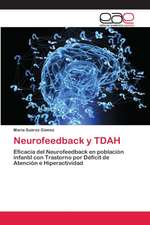Foundations of Interprofessional Health Education: An Ecological Theory
Autor C. Scott Smithen Limba Engleză Paperback – 9 iul 2024
| Toate formatele și edițiile | Preț | Express |
|---|---|---|
| Paperback (1) | 702.04 lei 38-44 zile | |
| Springer Nature Switzerland – 9 iul 2024 | 702.04 lei 38-44 zile | |
| Hardback (1) | 959.35 lei 38-44 zile | |
| Springer Nature Switzerland – 8 iul 2023 | 959.35 lei 38-44 zile |
Preț: 702.04 lei
Preț vechi: 738.99 lei
-5% Nou
Puncte Express: 1053
Preț estimativ în valută:
134.33€ • 140.63$ • 111.15£
134.33€ • 140.63$ • 111.15£
Carte tipărită la comandă
Livrare economică 03-09 aprilie
Preluare comenzi: 021 569.72.76
Specificații
ISBN-13: 9783031334160
ISBN-10: 3031334167
Ilustrații: XIX, 151 p. 272 illus., 176 illus. in color.
Dimensiuni: 155 x 235 mm
Ediția:2023
Editura: Springer Nature Switzerland
Colecția Springer
Locul publicării:Cham, Switzerland
ISBN-10: 3031334167
Ilustrații: XIX, 151 p. 272 illus., 176 illus. in color.
Dimensiuni: 155 x 235 mm
Ediția:2023
Editura: Springer Nature Switzerland
Colecția Springer
Locul publicării:Cham, Switzerland
Cuprins
Introduction.- Part One: The Natural Domain.- Chapter 1. Affordances.- Chapter 2. The Classical Model.- Chapter 3. Critical Realism.- Chapter 4. Realist Affordances.- Part Two: The Mental Domain.- Chapter 5. The Life-world.- Chapter 6. Sense of Being.- Chapter 7. Emotion.- Chapter 8. “Knowing” the World.- Chapter 9. Intrinsic Expansion of the Life-world.- Chapter 10. Mediated Expansion of the Life-world.- Chapter 11. Inner Wisdom.- Part Three: The Social Domain.- Chapter 12. Behavioral Settings.- Chapter 13. Language, Rituals, and Stories.- Chapter 14. Semiotics.- Chapter 15. Revisiting Identity.- Chapter 16. Boundaries & Bridges.- Part Four: Non-Linearity.- Chapter 17. Complex Adaptive Systems.- Chapter 18. Complementarity.- Chapter 19. Dynamics.- Part Five: Application.- Chapter 20. Design & Implementation.- Chapter 21. Maintenance.- Chapter 22. Evaluation.- Chapter 23: Conclusions.
Notă biografică
C. Scott Smith, MD is a Professor Emeritus of Medicine at the University of Washington, Seattle, Washington. He saw patients and taught students and residents at the Boise, ID VA hospital for 28 years. During that time, he served in residency leadership, including as the founding Program Director of the University of Washington’s Internal Medicine-Boise program. He spent the last eight years of his career as the medicine site director and ultimately national medicine consultant for the V.A.’s multisite “Centers of Excellence in Primary Care Education” program.
Textul de pe ultima copertă
This book is designed to introduce a theory of ecological psychology into interprofessional health education. The foundations are affordances (features in the environment that afford the opportunity to be recognized and utilized), the life-world (what the meaningful environment contains for the trainee), and behavioral-settings (person-made affordances that are permissive, supportive, or resistive to specific behaviors). Expanding the life-world is the main mechanism of learning in health care. Becoming aware of intentional and unintentional features of the behavioral setting is how we structure the curricular environment to achieve this life-world expansion. The book is structured into four domains: The Natural Domain, The Mental Domain, The Social Domain, and Non-Linearity. The final application section lays out a structure for designing, implementing, and evaluating the educational program in a professional healthcare setting. This book is ideal for clinician managers of interprofessional healthcare clinics, and for the teachers and trainees from each discipline (e.g., medicine, nursing, pharmacy, psychology, social work, etc.).
Caracteristici
Introduces a theory of ecological psychology into interprofessional health education Structured into four domains: natural, mental, social, and non-linearity Includes practical examples and guidance on how to implement this into the professional medical setting















